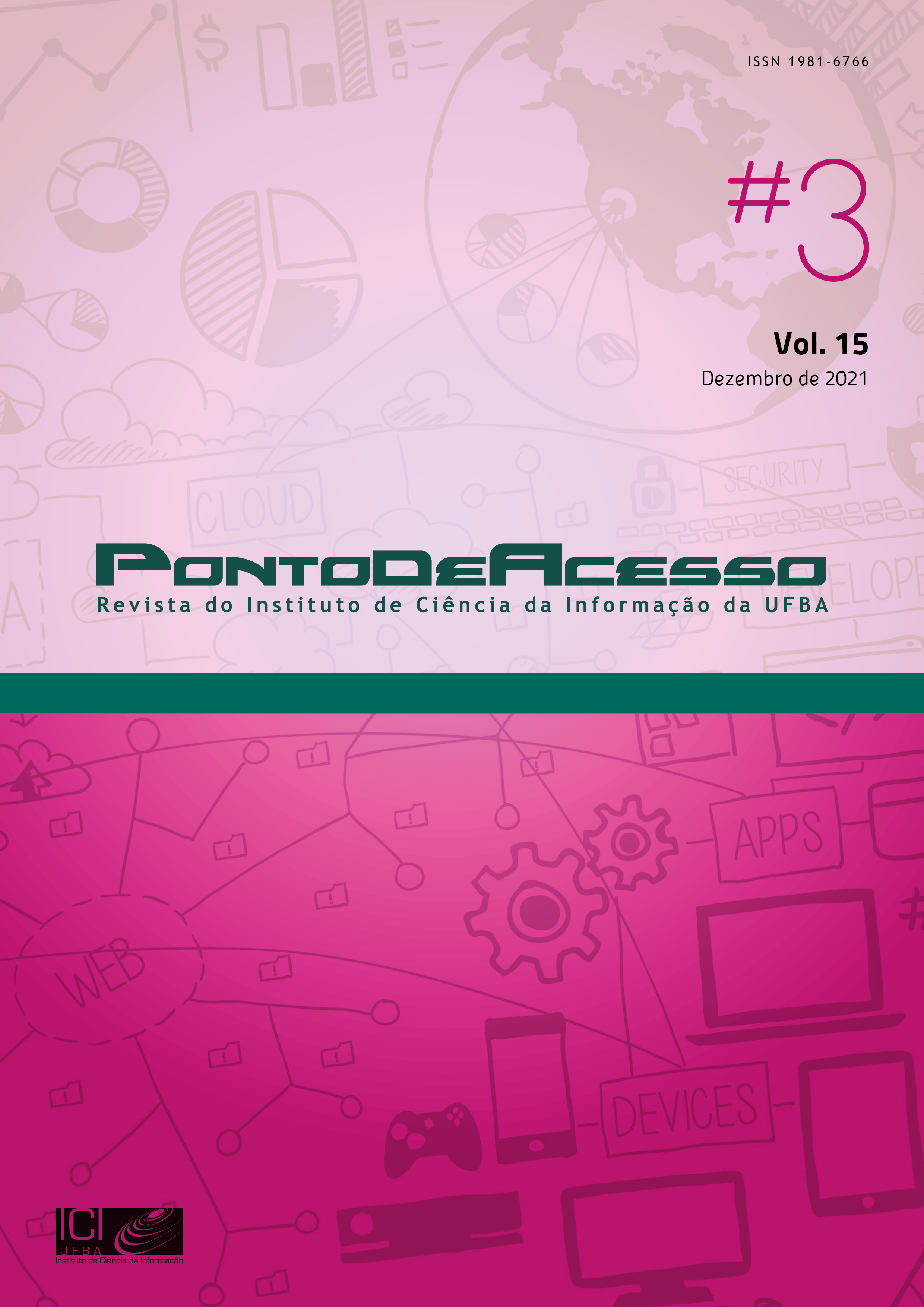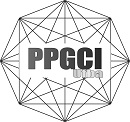ENSAIO SOBRE ONTOLOGIA APLICADA NA RECUPERAÇÃO DA INFORMAÇÃO PARA A CIÊNCIA DA INFORMAÇÃO
DOI:
https://doi.org/10.9771/rpa.v15i3.47471Palabras clave:
Ontologia aplicada, representação do conhecimento, recuperação da informação, ciência da informaçãoResumen
Apesar de não existir consenso sobre questões centrais no campo da Ciência da Informação, pelo menos três delas merecem destaque: a recuperação da informação, a relevância da informação recuperada e a interação entre o humano e a tecnologia durante estes processos. O processo de recuperação da informação é validado pela adequação das respostas obtidas face às necessidades dos usuários, seja ele realizado por métodos manuais ou automáticos. Não há como desassociar deste contexto a forma como o domínio do conhecimento está representado e organizado: quanto mais fidedigna a representação em relação à realidade, maior é a capacidade de se obter resultados consistentes. Ao contrário do que pregam as abordagens puramente tecnológicas de orientação estatística, advoga-se aqui que o trabalho intelectual de classificar e organizar ainda é o ponto fundamental na Recuperação da Informação. Neste ensaio, de caráter informativo e admitidamente incompleto, enfatizam-se aspectos inerentes às ontologias que permeiam questões centrais da área e que fundamentam novas possibilidades de pesquisa. Sugere-se que a criação da disciplina da Ontologia Aplicada no currículo da Ciência da Informação pode trazer benefícios e gerar oportunidades para pesquisadores, estudantes e profissionais.
Descargas
Citas
ALEXANDER, J. H. et al. Knowledge Level Engineering Ontological Analysis. In: NATIONAL CONFERENCE ON ARTIFICIAL INTELLIGENCE (AAAI-86). 1986, [Philadelphia]. Proceedings [...]. [Philadelphia: s. n.], 1986. p. 6. Disponível em: https://www.aaai.org/Papers/AAAI/1986/AAAI86-159.pdf
ALMEIDA, M. B. Revisiting ontologies: A necessary clarification. Journal of the American Society for Information Science and Technology, v. 64, n. 8, p. 1682-1693, ago. 2013.
ALMEIDA, M. B. Ontologia em Ciência da Informação: teoria e método. Curitiba: CRV, 2020. v. 1.
ALMEIDA, M. B. Ontologia em Ciência da Informação: tecnologia e aplicações. Curitiba: CRV, 2021. v. 2.
ALMEIDA, M. B.; FARINELLI, F. Ontologies for the representation of electronic medical records: The obstetric and neonatal ontology. Journal of the Association for Information Science and Technology, v. 68, n. 11, p. 2529-2542, 2017.
ALMEIDA, M. B.; FELIPE, E. R.; BARCELOS, R. Toward a document‐centered ontological theory for information architecture in corporations. Journal of the Association for Information Science and Technology, v. 71, n. 11, p. 1308-1326, Nov. 2020.
ARP, R.; SMITH, B.; SPEAR, A. D. Building Ontologies with Basic Formal Ontology. Cambridge, Massachusetts: The MIT Press, 2015.
ASHBURNER, M. et al. Gene Ontology: tool for the unification of biology. Nature Genetics, v. 25, p. 25-29, May 2000.
BAADER, F. et al. Terminological Knowledge Representation: A Proposal for a Terminological Logic. [S. l.: s. n.], 1991.
BAEZA-YATES, R.; RIBEIRO-NETO, B. Modern information retrieval: the concepts and technology behind search. 2. ed. New York: Addison Wesley, 2011.
BARD J.; RHEE SY.; ASHBURNER M. An ontology for cell types. Genome Biology, London, v. 6, n. 2, 2005.
BERNERS-LEE, T.; HENDLER, J.; LASSILA, O. The Semantic Web: A new form of Web content that is meaningful to computers will unleash a revolution of new possibilities. Scientific American, v. 1, p. 34-43, May 2001.
BERNIER, C. L.; CRANE, E. J. Indexing abstracts. Industrial and Engineering Chemistry. v. 40, n. 4, p. 725-30, 1948.
BRACHMAN, R. J.; LEVESQUE, H. J.; PAGNUCCO, M. Knowledge Representation and Reasoning. 1. ed. [s. l.]: Morgan Kaufmann, 2004.
BUSH, V. As We May Think. Life Magazine, p. 112-124, Oct. 1945.
CHEN, P. P.-S. The Entity-Relationship Model-Toward a Unified View of Data. ACM Transactions on Database Systems, v. 1, n. 1, p. 9-36, 1976.
CLEVERDON, C. Evaluation Tests of Information Retrieval Systems. Journal of Documentation, v. 26, n. 1, p. 55-67, jan. 1970.
CODD, E. F. A Relational Model of Data for Large Shared Data Banks. Commun. ACM, v. 13, n. 6, p. 377-387, jun. 1970.
DAHLBERG, I. A referent-oriented analytical concept theory of interconcept. International Classification, v. 5, n. 3, p. 142-150, 1978.
DATE, C. J. Introdução a sistemas de bancos de dados. Rio de Janeiro: Campos, 1984.
EMYGDIO, J. L. Interoperabilidade semântica orientada por ontologia para a Ciência da Informação: a metodologia Onto4All-Interoperability como resultado de estudo de caso no domínio de energia. 2021. Tese (Doutorado em Ciência da Informação) − Universidade Federal de Minas Gerais, Belo Horizonte, 2021.
FARINELLI, F. et al. IT403: OntONeo: The Obstetric and Neonatal Ontology. In: INTERNATIONAL CONFERENCE ON BIOMEDICAL ONTOLOGY AND BIOCREATIVE, 7., 2016, Corvallis, Oregon. Proceedings [...]. [S. l.]: CEUR-ws.org, 2016.
FELIPE, E. R. A expansão de queries sobre terminologias biomédicas: uma comparação de artefatos de representação do conhecimento para Recuperação de Informações. 2020. Tese (Doutorado em Ciência da Informação) − Universidade Federal de Minas Gerais, Belo Horizonte, 2020.
GÓMEZ-PÉREZ, A.; FERNÁNDEZ, M.; VICENTE, A. de. Towards a Method to Conceptualize Domain Ontologies. In: 12TH EUROPEAN CONFERENCE ON ARTIFICIAL INTELLIGENCE. 1996, Budapest. Proceedings [...]. Budapest, Rumanía: Facultad de Informática (UPM), 1996.
GONZALEZ, M.; LIMA, V. L. S. de. Recuperação de informação e processamento da linguagem natural. [Marília: Unesp], 2003. Disponível em: https://www.marilia.unesp.br/Home/Instituicao/Docentes/EdbertoFerneda/mri-06---gonzales-e-lima-2003.pdf. Acesso em: 11 out. 2021.
GRUBER, T. R. Towards principles for the design of ontologies used for knowledge sharing. In: GUARINO, N.; POLI, R. (ed.). Formal Ontology in Conceptual Analysis and Knowledge Representation. [London: England Academic Press], 1994.
GRÜNINGER, M.; FOX, M. S. Methodology for the Design and Evaluation of Ontologies. Workshop on Basic Ontological Issues in Knowledge Sharing. In: THE 1995 INTERNATIONAL JOINT CONFERENCE ON AI. 1995, Montreal. Anais [...]. Montreal: [AAAI; CSCSI], 1995.
GUARINO, N. Formal Ontology and Information Systems. In: FORMAL ONTOLOGY IN INFORMATION SYSTEMS. 1998. Trento, Italy. Proceedings [...]. Amsterdam: IOS Press, 1998.
GUIZZARDI, G. Ontological Foundations For Structural Conceptual Models. Enschede: Centre for Telematics and Information Technology, University of Twente, 2005.
JACOBSON, I. et al. Object-oriented software engineering: a use case driven approach. New York: Addison-Wesley, 1992.
JARDINE, D. A. The ANSI/SPARC DBMS model. In: SHARE WORKING CONFERENCE ON DATABASE MANAGEMENT SYSTEMS, 2., 1976, Montreal. Proceedings [...]. Amsterdam: North Holland, 1976. p. 1-225.
LESK, M. The seven ages of information retrieval. Ottawa: IFLA, 1996. v. 5. Disponível em: https://archive.ifla.org/VI/5/op/udtop5/udt-op5.pdf. Acesso em: 11 Oct. 2021.
LUHN, H. P. A new method of recording and searching information. American Documentation, v. 4, n. 1, p. 14-16, jan. 1953.
LUHN, H. P. A Statistical Approach to Mechanized Encoding and Searching of Literary Information. IBM Journal of Research and Development, v. 1, n. 4, p. 309-317, Oct. 1957.
MANNING, C. D.; RAGHAVAN, P.; SCHUTZE, H. Introduction to Information Retrieval. United States of America: Cambridge University Press, 2008.
MENDONÇA, F. M. Ontoforinfoscience: metodologia para construção de ontologias pelos cientistas da informação - Uma aplicação prática no desenvolvimento da ontologia sobre componentes do sangue humano (HEMONTO). 2015. Tese (Doutorado em Ciência da Informação) − Universidade Federal de Minas Gerais, Belo Horizonte, 2015.
MOOERS, C. N. The Theory of Digital Handling of Non-numerical Information And Its Implications to Machine Economics. Boston: Zator, 1950.
MOOERS, C. N. Making information retrieval pay. Boston: Zator, 1951.
MOOERS, C. N. Zatocoding and Developments in Information Retrieval. Aslib Proceedings, v. 8, n. 1, p. 3-22, jan. 1956.
MOOERS, C. N. The next twenty years in information retrieval; some goals and predictions. American Documentation, v. 11, n. 3, p. 229-236, Aug. 1960.
MUNN, K.; SMITH, B. Applied Ontology: An Introduction. [s. l.] Frankfurt: Ontos, 2008.
NATIONAL CENTER FOR SUPERCOMPUTING APPLICATIONS. NCSA Mosaic. (1993) Seção Enabling discovery. Disponível em: http://www.ncsa.edu/Projects/mosaic.html. Acesso em: 11 Oct. 2021.
ROBERTSON, S. The Probability Ranking Principle in IR. Journal of Documentation, v. 33, p. 294-304, dez. 1977.
ROSSE, C.; MEJINO, J. L. V. A reference ontology for biomedical informatics: the Foundational Model of Anatomy. Journal of Biomedical Informatics, Unified Medical Language System, v. 36, n. 6, 2003.
SARACEVIC, T. On the concept of relevance in information science. [Cleveland]: Case Western Reserve University, 1970.
SALTON, Gerald. Automatic information organization and retrieval. New York: McGraw-Hill Computer Science Series, 1968.
SALTON, G. MCGILL, M. J. Introduction to modern information retrieval. New York: McGraw-Hill Computer Science Series, 1983.
SCHEUERMANN, R. H.; CEUSTERS. W.; SMITH, B. Toward an ontological treatment of disease and diagnosis. Summit on Translat Bioinforma, v. 2009, (20090301), p. 116-120, Mar. 2009.
SCHULZ, S. et al. Interface Terminologies, Refer- ence Terminologies and Aggregation Terminologies: A Strategy for Better Integration. Studies in health technology and informatics, v. 245, p. 940-944, 2017.
SMITH, B. Ontology. In: The Blackwell Guide to the Philosophy of Computing and Information. Oxford: Luciano Floridi, 2003.
SMITH, B.; CEUSTERS, W. Ontological realism: A methodology for coordinated evolution of scientific ontologies. Applied ontology, v. 5, n. 3/4, p. 139-188, Nov. 2010.
SMITH, B.; KLAGGES, B. Philosophy and Biomedical Information Systems In: MUNN, K.; SMITH, B. Applied Ontology: An Introduction. Frankfurt: Ontos, 2008. Chapter 1.
SMITH, B.; WELTY, C. FOIS introduction - Ontology: Towards a New Synthesis. In: THE INTERNATIONAL CONFERENCE ON FORMAL ONTOLOGY IN INFORMATION SYSTEMS, 2001, New York. Anais [...]. New York: ACM Press, 2001. Disponível em: http://portal.acm.org/citation.cfm?doid=505168.505201
SMITH, B. et al. The OBO Foundry: coordinated evolution of ontologies to support biomedical data integration. Nature Biotechnology, v. 25, n. 11, p. 1251-1255, nov. 2007.
SOERGEL, D. The Rise of Ontologies or the Reinvention of Classification. Journal of the American Society for Information Science, v. 50, n. 12, p. 1119-1120, Oct. 1999.
SOUZA, R. R.; TUDHOPE, D.; ALMEIDA, M. B. Towards a Taxonomy of KOS: Dimensions for Classifying Knowledge Organization Systems. Knowledge Organization, v. 39, n. 3, p. 179-192, 2012.
SUÁREZ-FIGUEROA, M. C.; GÓMEZ-PÉREZ, A.; FERNÁNDEZ-LÓPEZ, M. The NeOn Methodology for Ontology Engineering. In: SUÁREZ-FIGUEROA, M. C. et al. (ed.). Ontology Engineering in a Networked World. Berlin: Springer Berlin Heidelberg, 2012. p. 9-34
TEIXEIRA, L. M. D. Princípios ontológicos aplicados à classificação internacional de doenças: alternativas para a busca por interoperabilidade semântica entre sistemas de prontuários eletrônicos de pacientes. 2019. Tese (Doutorado em Ciência da Informação) − Universidade Federal de Minas Gerais, Belo Horizonte, 2019.
USCHOLD, M.; GRUNINGER, M. Ontologies: principles, methods and applications. Knowledge Engineering Review, v. 11, n. 2, 1996.
WAND, Y.; WEBER, R. An ontological model of an information system. IEEE Transactions on Software Engineering, v. 16, n. 11, 1990.
WUESTER, E. L‘étude scientifique générale de la terminologie, zone frontalière entre la linguistique, la logique, l‘ontologie, l‘informatique et les sciences des choses. In: RONDEAU, G.; FELBER, F. (org.). Textes choisis de terminologie. I. Fondéments théoriques de la terminologie. Québec: GIRSTERM, 1981. p. 57-114.
W3C. (2012). OWL-2 Web Ontology Language document Overview – W3C Recommendation. Disponível em: http://www.w3.org/TR/2012/ REC-owl2-overview-20121211/. Acesso em: 10 ago. 2021.
VICKERY, B. C. Knowledge representation: a brief review. Journal of Documentation, v. 42, n. 2, p. 145-159, 1986.
VICKERY, B. C. Ontologies. Journal of Information Science, v. 23, n. 4, p. 277-286, 1997.
Descargas
Publicado
Cómo citar
Número
Sección
Licencia
Derechos de autor 2021 PontodeAcesso

Esta obra está bajo una licencia internacional Creative Commons Atribución 4.0.
A PontodeAcesso utiliza a licença do Creative Commons (CC), preservando assim, a integridade dos artigos em ambiente de acesso aberto. A revista permite que o autor retenha os direitos de publicação sem restrições.








